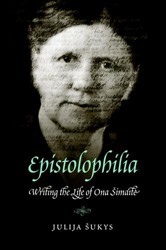Rabbi Shlomo Carlebach (1925−1994) was a Jewish cult figure, a global rebbe to many otherwise disenfranchised, disinterested young people, whose music is now sung in every Jewish community in the world. He was called the singing rabbi, the hippie rabbi, the dancing rabbi, and a healer. He was a most unorthodox Orthodox rabbi, a musical genius who composed close to 7,000 tunes, and a religious exegete who defied categorization.
Carlebach started out as a brilliant yeshiva student and became one of the first Chabad emissaries to college campuses. Eventually he used the guitar to connect to young people with music and stories, and a career was launched. He traveled throughout North America and the world giving concerts and bringing a taste of authentic Judaism to those on the fringes or to those who had been turned off by the religion.
It is difficult for an admirer to write a critical biography without turning it into a hagiography, and Rabbi Dr. Natan Ophir is clearly a Carlebach fan. For this biography he has diligently collected thousands of stories, scores of articles, and scoured the Internet for all available source material about Rabbi Shlomo Carlebach. The book is mostly a collection of hundreds of first person interviews with followers, acolytes, admirers, and Carlebach hasidim. There is very little here about his personal life other than that he was married, divorced, and had two daughters. He was charitable to his own detriment and performed many anonymous acts of lovingkindness to the poor in his Manhattan neighborhood. As a biography, this book falls short; however, it is a thorough depiction of the Carlebach phenomena. Lives were changed by Carlebach. His message resonated far beyond his concerts, recordings, and inter-personal relationships. The author shows how Carlebach changed the face of contemporary Judaism and Jewish music.
He was not a systematic theologian. He preached a neo-Hasidic egalitarian Judaism, which was about inclusive diversity, unity not uniformity. He provided an experiential alternative for spiritual seekers. His style of singing, whistling, guitar playing, and storytelling, his ethical/theological exhortations, personal anecdotes, and non-judgmental way of appreciating others endeared him to his many followers. He spoke the hippie/New Age language, and he gained their trust and love. Through his hypnotic, mesmerizing chants, the simplicity of his melody line, the intensity of his performance, and the charisma of his personality, he turned on an entire generation and many of their parents as well. “He was Dylan, Elvis, Arlo and Seeger all rolled into one, with a touch of Sholem Aleichem and Mark Twain,” Ophir writes. He touched the lives of many hundreds if not thousands who went on to study, go to Israel, and/or live committed Jewish lives.
However, all of this came at a great cost to him personally. Because he sang to mixed audiences, because he sang with and hugged women, and because he was non-judgmentally egalitarian, he lost the support of the haredi and yeshiva world which had first nurtured him. Because he was so loving, effusive, and created strong emotional attachments, there were post-mortem accusations made against him of improprieties with women. The author’s unwillingness to deal with this is a disappointment. “I decided to leave room for other writers to undertake the challenging tasks of judge or jury.”
Despite the book’s subjectivity, it is an excellent beginning. Carlebach’s many teachings, homilies, stories, etc. will be analyzed in the author’s promised companion volume. Then we may learn more about Carlebach’s methodology and philosophy. It remains to be seen if this unsystematic legacy can be systematized. In the meantime this is a good read about a major cultural icon, but not yet the definitive biography. Bibliography, discography, timeline.
Related Content:
- Music in Jewish History and Culture by Emanuel Rubi and John H. Baron
- When They Come For Us We’ll Be Gone: The Epic Struggle to Save Soviet Jewry by Gal Beckerman





